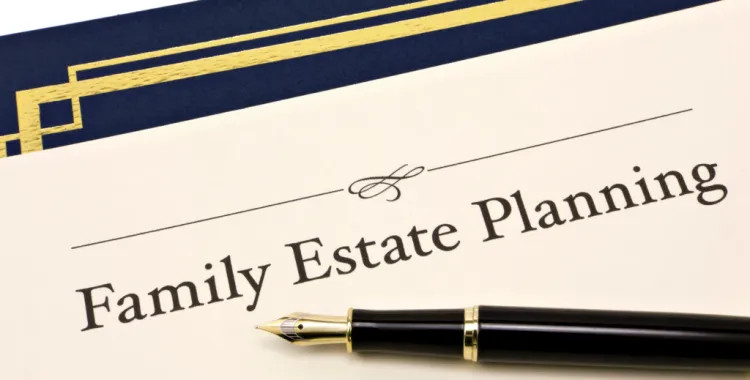Estate Planning for a Taxing Inheritance

Inheriting a pre-tax IRA may be less beneficial than the parent intends.
How Does a Revocable Trust Work?

The terms ‘revocable trust’ and ‘living trust’ are commonly heard in an estate-planning context. You may hear people say, ‘My house is in trust for my children,’ or something along those lines.
The Hidden Pitfalls of Co-Owning a Vacation Home

Explore the benefits and challenges of co-owning a vacation home, and how an estate planning attorney can help prevent potential disputes.
Empowering Your Healthcare Decisions: The Essential Guide to Advance Directives

Advance directives enable you to legally document healthcare and end-of-life preferences, ensuring that your treatment aligns with your values and wishes, even when you can’t speak for yourself.
How to Protect Your Spouse when Diagnosis Is Dementia

I have been diagnosed with brain damage and dementia. Word to the younger folks: I woke up last year and suddenly could not spell or write legibly. No warning. No symptoms.
How to Choose an Estate Planning Attorney: Essential Tips and Questions to Ask

Estate planning is critical to ensuring your legacy and wishes are respected. Choosing the right estate planning attorney is essential to this process. This article provides tips for selecting an attorney to serve your needs best and guide you through crafting a comprehensive estate plan.
Understanding the 2024 Gift Tax Exclusions and Strategies for Wealth Transfer

The current landscape of gift tax and generation-skipping transfer (GST) tax exclusions in 2024 offers a window of opportunity for strategic estate planning. Proactive planning, tailored to both federal and state-specific laws, is key to maximizing wealth transfer under these favorable conditions.
A Will Alone Is Not Enough to Avoid Probate: Beyond Basic Estate Planning

Learn the critical reasons why a will alone is insufficient for a comprehensive estate plan, and why incorporating trusts, beneficiary designations and incapacity planning is essential to ensure a seamless and protected transfer of your assets to your loved ones.
Do You Know How to Probate an Estate?

You might have a job or just have retired, and you learn suddenly that your Great Aunt Lucy died and named you executor of her will. How hard could it be you ask to resolve an estate by yourself without professional advice or a competent professional beside you?
Estate Planning after a Divorce: What You Need to Know

Divorce significantly affects your estate plan. Therefore, it’s crucial to take timely action to revise it. If you’re going through a divorce or have recently finalized one, it may be time to review and update your estate plan.

